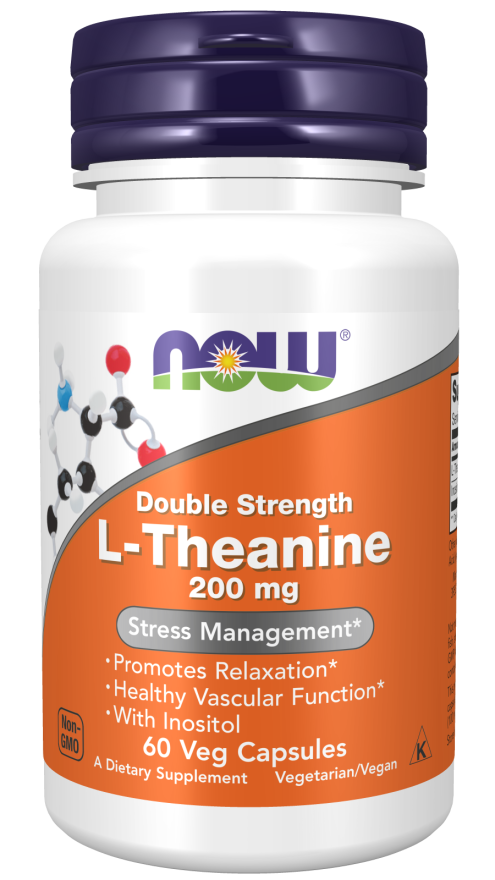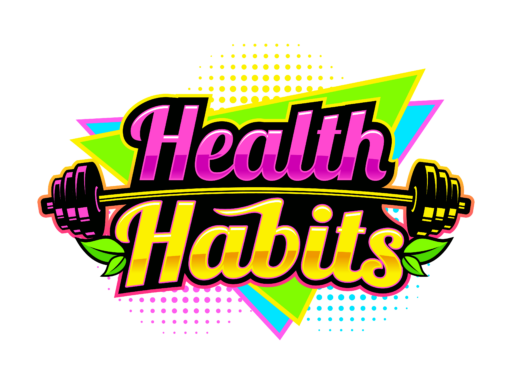L-Theanine is an amino acid that’s rarely found in our diet, and isn’t considered an “essential amino acid.” The only place we can get it in substantial amounts is tea, especially green tea.
As a supplement, l-theanine has been researched for improving focus, reducing stress, and inducing a relaxing effect that’s commonly referred to as a “flow” state.
Because of these effects, it’s a popular supplement on its own, and also an incredibly common ingredient in nootropic and other products aimed at improving cognition.
It also has compelling research on populations with ADHD.
While its effects don’t substitute for pharmaceutical medication, research has suggested that it can improve ADHD symptoms in a few different ways.
How L-Theanine Acts On The Brain
For the chemistry nerds, l-theanine is structurally similar to glutamine, and a neurotransmitter made from glutamine called GABA (Gamma-aminobutyric acid), which is crucial in helping us relax. This, then, explains how l-theanine works, by upregulating the production of GABA and inducing a relaxing state.

L-Theanine Can Improve ADHD by Improving Sleep
A 2011 study from the University of British Columbia gave a group of boys with ADHD 400mg of l-theanine per day in two equal doses. As we talked about in this article on 5 non-pharmaceutical interventions for ADHD, sleeping poorly exacerbates ADHD symptoms. By improving sleep, people can improve their symptoms.
In this study, the boys who took l-theanine had more sleep overall and higher sleep efficiency scores after six weeks of supplementation.
This suggests that by improving sleep overall, l-theanine can improve ADHD symptoms.
L-Theanine with Caffeine Together Improve symptoms
While l-theanine in proper doses can improve ADHD, the strongest and most direct effects have been demonstrated when it’s combined with caffeine.
In chemistry, a common term is to say that there’s a “synergistic” effect between ingredients. Think of this term as the saying, “the sum is greater than its parts.”
L-theanine improves symptoms, and, as we’ve written about, caffeine can improve ADHD symptoms. But when taken together, they improve symptoms more than the combination of the boost separately.
There are two studies, from the same research team out of Texas Tech University published in 2019 and 2020 respectively that look at this synergistic effect. The latter was published in the prestigious journal, Nature.
Improved Alertness and Reduced Stress
One of the downsides of caffeine is that it can cause “jitters.” Those with ADHD are particularly vulnerable to this. L-theanine, though, has a calming effect. That’s why their combination can work so well for ADHD symptoms.
“The combination,” the authors write in nature, “seems to decrease (i.e., improve) impulsivity in children with ADHD.”
In the studies, children had 2.5mg of l-theanine per kilogram of bodyweight, which for a 150lb person, is 170mg, similar to the doses used in the other study, and 2mg of caffeine per kg, which ends up being around a cup of coffee.
If you’re looking to take l-theanine and caffeine for ADHD symptoms, you may have the best effect by working towards this dose.
With this research in mind, there are a few different approaches you can take to using l-theanine to improve ADHD symptoms.
Strategy #1: Supplement 150-400mg to Improve Sleep
To find the dose, use the same formula as they used in the research, 2.5mg per kg of bodyweight. In the l-theanine only study, children took the dose twice per day: once in the morning and once in the afternoon, right after school.
If you struggle with sleeping, and sleeping deeply, this can be part of a regime to improve your sleep. In conjunction with strategies like caffeine curfews, turning off screens in the evening, and other good “sleep hygiene” practices you can improve your ADHD symptoms just by sleeping better.
We have talked about this in other articles, like this article on how to fall asleep faster.
Strategy #2: Caffeine + L-theanine Supplementation
The second strategy is the most aggressive one. This is replicating the protocol of the Texas Tech studies and taking l-theanine at relatively high doses along with caffeine. Naturally, if you want those benefits, you should follow a similar approach.
Again, this is 2.5mg of l-theanine per kg and 2mg of caffeine per kg.
You can also start at smaller doses and work your way up if you don’t feel the benefits. These studies took place over the course of several weeks as well.
Strategy #3: Drink Green Tea
Green tea is one of the healthiest drinks on the planet for a whole host of reasons. Additionally, it’s nature’s most abundant source of l-theanine. Interestingly, it also has caffeine, so a cup of green tea mimics the synergistic studies, but at much smaller doses.
An average cup of green tea has 25mg of l-theanine, which is much lower than the doses used in the study. Naturally, you’d expect a less powerful effect. However, it’s a great place to test out a smaller dose, and you may subjectively feel the effects.
What Are The Best L-Theanine Supplements for ADHD?
The supplement industry is notorious for low-quality products because they’re not regulated by the FDA. That’s why it’s crucial to choose a product that’s third-party tested. Ideally, they even go beyond typical third-party testing, but there are many ways companies sneak ingredients by tests. Ideally, then, they even display their lab results.
One quality company with a simple, inexpensive product is NOW Foods.

Learn more about NOW L-Theanine here.
More on Strategies to Improve ADHD Symptoms
ADHD is one of the most prevalent diagnoses in modern medicine. And while medication has proven to be very effective, it does carry downside.
That’s why we’ve written on several non-pharmaceutical treatment options, including l-tyrosine and caffeine. So if you have ADHD and want to explore options to support your symptoms and help you focus more or take less medication, check out those articles.

July 14, 2022 at 7:35 am
Good information. Lucky me I discovered your site by chance (stumbleupon). I’ve book marked it for later!